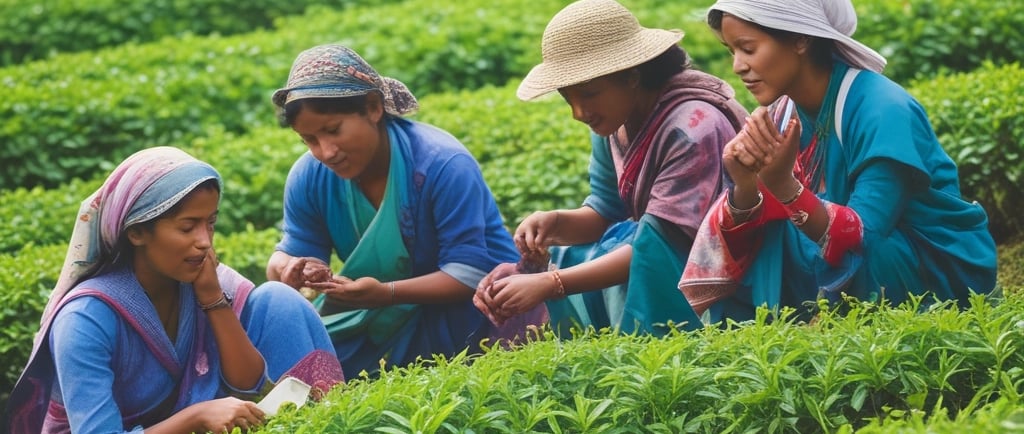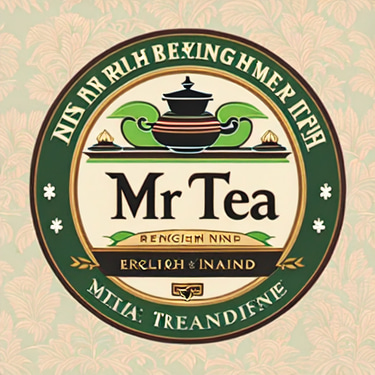Key Certifications for Tea Picking Machinery: Ensuring Quality and Compliance
When importing tea picking machinery, ensure it meets essential certifications for quality and safety. Key certifications include ISO 9001 for quality management, CE marking for compliance with European standards, and RoHS for restriction of hazardous substances. Additionally, check for local certifications required in your region. These certifications ensure your machinery is reliable, safe, and built to last, helping improve efficiency and productivity on your tea farm.
4/5/20254 min read


Introduction to Tea Picking Machinery Certifications
The tea picking machinery industry plays a crucial role in the agriculture sector, specifically in the cultivation and processing of tea. As the demand for high-quality tea increases globally, the need for efficient and reliable machinery has become paramount. Certifications in tea picking machinery serve as essential indicators of quality, safety, and efficiency, benefiting both manufacturers and users alike. They ensure that the equipment adheres to specific industry standards and regulations, thereby upholding customer trust and promoting operational excellence.
Certifications are imperative because they provide verification that machinery meets predetermined criteria set by authoritative bodies. This quality assurance is particularly significant in the tea sector, where machinery directly impacts the quality of the final product. By acquiring relevant certifications, manufacturers signal their commitment to producing safe and efficient equipment, while users gain confidence in the machinery's performance and reliability in the field. Importantly, these certifications can also influence purchasing decisions, serving as a competitive differentiator in a crowded market.
Among the main types of certifications relevant to tea picking machinery is the International Organization for Standardization (ISO) certification, which encompasses various standards that gauge safety, quality, and efficiency. Another significant certification is the CE marking, indicating conformity with health, safety, and environmental protection standards for products sold within the European Economic Area. Additionally, certification from recognized agricultural bodies ensures that machinery complies with specific environmental and operational guidelines pertinent to tea farming practices. Understanding these certifications is vital for stakeholders, including manufacturers, farmers, and distributors, as they serve to foster a culture of quality and compliance within the industry.
ISO Certifications and Their Significance
The International Organization for Standardization (ISO) plays a crucial role in establishing standards that enhance the quality and reliability of products and services across various industries, including tea picking machinery. Among the myriad of ISO certifications, ISO 9001 and ISO 14001 stand out as essential for manufacturers aiming for compliance and excellence in operational practices.
ISO 9001 focuses on quality management systems. It provides a framework that organizations can follow to ensure that their products consistently meet customer and regulatory requirements. For tea picking machinery manufacturers, achieving ISO 9001 certification signals to clients and stakeholders that their equipment is produced with a commitment to quality. This certification not only fosters trust but also helps companies refine their processes, leading to improved customer satisfaction and reduced operational costs.
On the other hand, ISO 14001 is centered on environmental management. This standard guides organizations in enhancing their environmental performance through more efficient use of resources and reduction of waste. Tea picking machinery that adheres to ISO 14001 requirements demonstrates a commitment to sustainable practices, which is increasingly important in today's environmentally conscious market. By obtaining this certification, manufacturers can not only comply with international environmental regulations but also appeal to a growing segment of consumers who prioritize eco-friendly products.
Furthermore, both ISO certifications can enhance market accessibility. Companies with recognized ISO certifications often find it easier to penetrate global markets, as these certifications serve as a mark of reliability and commitment. In an industry where quality and environmental compliance are paramount, obtaining ISO certifications ensures that tea picking machinery meets the necessary standards, thus reinforcing the manufacturer's reputation and opening avenues for expansion.
Safety Certifications for Machinery
In the realm of tea picking machinery, the adherence to safety standards is not merely a regulatory requirement but a critical aspect of safeguarding operators and promoting a safe working environment. Various safety certifications serve as indicators of compliance with established safety regulations, ensuring that machinery is designed and maintained to minimize operational risks.
One of the most recognized certifications is the CE marking, which is mandatory for products marketed within the European Economic Area. This certification demonstrates that the tea picking machinery meets the safety, health, and environmental protection requirements specified in European Union directives. Compliance with CE marking not only reflects a commitment to safety but also enhances the trust of consumers and operators in the machinery used in tea harvesting.
In the United States, adherence to standards set forth by the Occupational Safety and Health Administration (OSHA) is vital for tea picking machinery. Compliance with OSHA regulations ensures that equipment is rigorously tested for safety, thereby minimizing hazards that may arise during operation. This certification not only protects the workers involved in the tea harvesting process but also promotes overall operational efficiency by reducing the likelihood of accidents and machinery malfunctions.
Moreover, obtaining safety certifications contributes positively to the reputation of manufacturers and operators. Buyers are increasingly inclined to invest in machinery that demonstrates compliance with recognized safety standards. This trend underlines the significance of maintaining safety certifications as a means to boost credibility within the tea production industry. Ultimately, prioritizing safety through recognized certifications enhances worker protection, promotes compliance with regulatory frameworks, and fosters a culture of safety that benefits all stakeholders involved in the tea picking process.
Industry-Specific Certifications and Innovations
In the tea industry, industry-specific certifications serve as crucial indicators of quality, sustainability, and social responsibility for tea picking machinery. These certifications, such as Fair Trade and Rainforest Alliance, not only reflect the operational standards but also highlight innovations in technology and sustainable farming practices. Obtaining these credentials can significantly enhance the credibility of manufacturers and improve market acceptance of their products.
Fair Trade certification emphasizes equitable trading conditions, ensuring that farmers receive a fair wage while adhering to sustainable practices in tea cultivation and harvesting. This certification often extends beyond just tea picking equipment; it encompasses the entire supply chain, promoting ethical labor practices and environmental conservation. As consumer awareness regarding ethical sourcing increases, machinery that holds such certifications becomes increasingly valuable in the marketplace, fostering consumer trust and preference.
Similarly, Rainforest Alliance certification focuses on sustainable agriculture practices and environmental stewardship. Manufacturers of tea picking machinery that align their production processes with the principles set forth by the Rainforest Alliance not only contribute to biodiversity conservation but also enhance their position in a competitive market. The integration of innovative, eco-friendly technologies in machinery development can lead to improved productivity while minimizing negative environmental impacts.
Moreover, the presence of these certifications can create lucrative market opportunities, as consumers are more likely to support brands that demonstrate a commitment to social and environmental responsibility. With the growing emphasis on sustainability within the tea industry, manufacturers who proactively seek industry-specific certifications can differentiate themselves from competitors, establishing a loyal customer base focused on quality and ethical standards.
Ultimately, the incorporation of industry-specific certifications in tea picking machinery not only reflects a commitment to excellence but also promotes a collective effort toward innovation and responsible practices in the tea sector.
